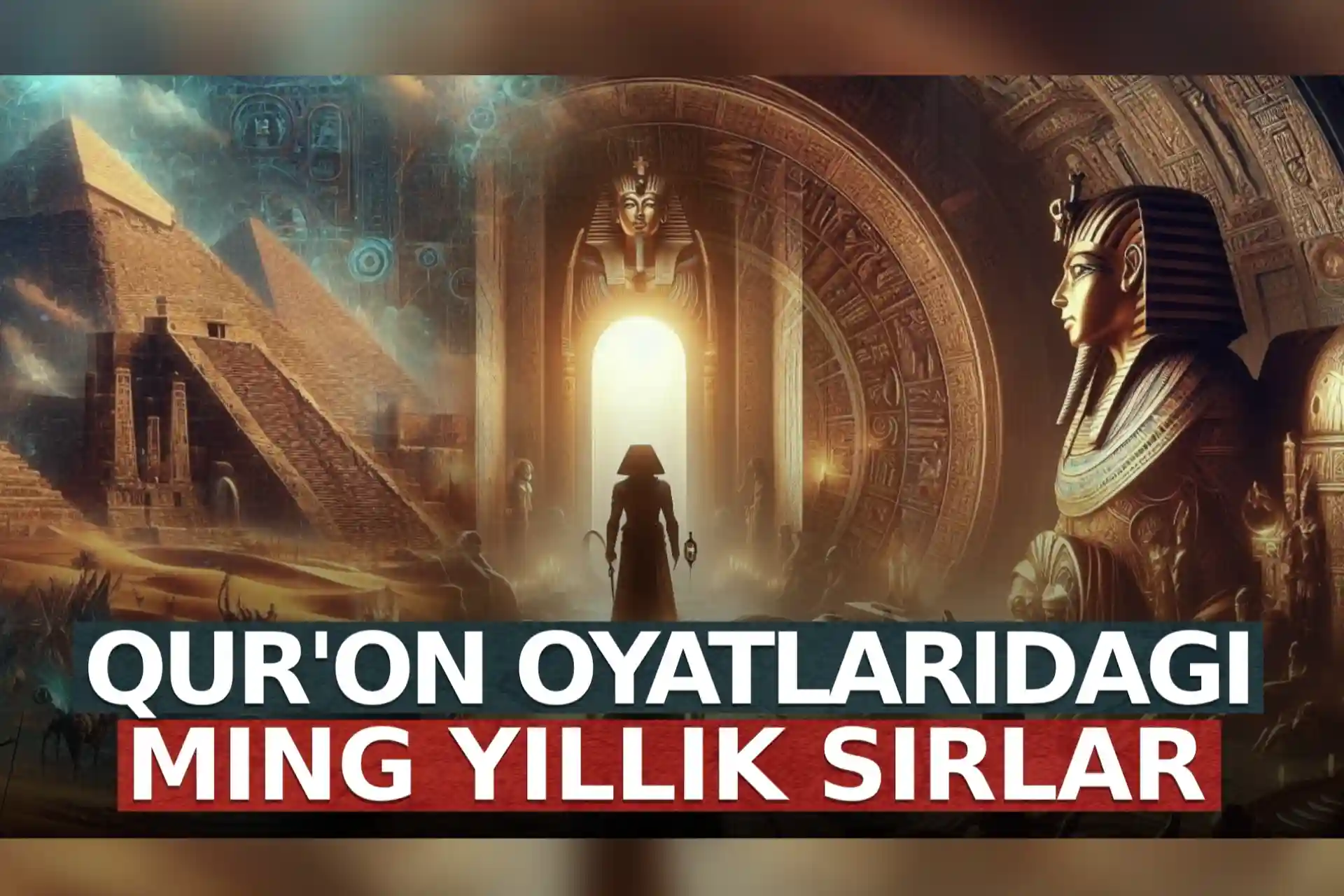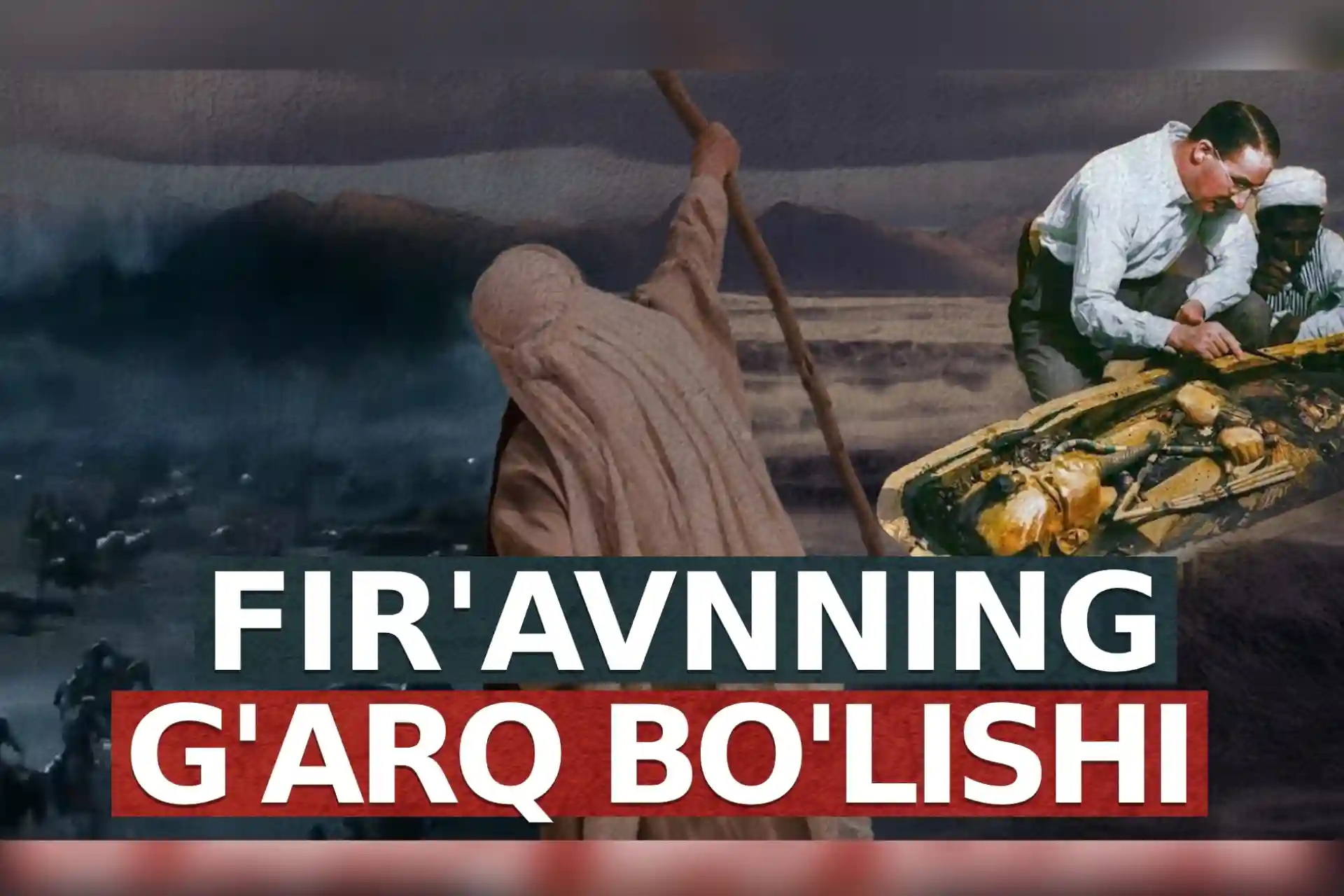Unseen messages in the Qur'an: the troubles that befell Pharaoh (video)
The Holy Qur'an is the word of God. A number of unseen messages were also received from him, and in the fourth part of our pamphlet dedicated to these unseen messages, we will talk about the troubles that befell the pharaoh. You can watch the video of the fourth part on our website.
"We subjected Pharaoh's people to years of (famine) and shortage of fruits, so that they would receive a reminder " (Surah A'raf, verse 130) ;
"Then We sent upon them floods, locusts, lice, frogs, and blood as clear miracles. (Then) they became arrogant . (They used to be) a people of criminals" (Surah A'raf, verse 133) .
In the above and other verses of the Qur'an, the calamities that befell Pharaoh and his people are mentioned. Floods, locusts, lice, frogs, and plagues are listed. In other words, the Almighty sent a severe rain to the people of Pharaoh, who did not stop denying. Eight days and eight nights of rain prevented anyone from going out, the Nile overflowed, and the torrential flood washed away houses, crops, and animals. During the calamity, Pharaoh's servants came to Hazrat Musa and said: "Pray to your Lord, remove this calamity from us and we will follow you." Musa, peace be upon him, fulfilled their request and with the blessings of his prayer, the flood subsided. But the people still did not believe. He did not retreat a single step from his path.
After that, Allah sent the plague of locusts as a sign and a miracle. The hordes of pests that have eaten the harvest of fields and gardens have entered people's houses and even their clothes. The weak ones rushed to Moses again and repeated what they had said before. With the blessings of Hazrat Musa, the wind came and threw the locusts into the river. However, Pharaoh and his people, who were blind in heart, did not keep their promise.
This time, Haq Ta'ala weighed down the people with lice. Insects that ate what was left of the locusts entered people's clothes and sucked their blood. The apparitions came for the third time and said that if they were saved from the calamity, they would believe in Moses. After the prayer of Hazrat Musa, Allah Almighty repelled the insects. And the people went so far as to say to the Prophet of God, "You are a sorcerer, you are doing all this with your magic", let alone believing.
This time there was fear everywhere. Knowing that the solution to salvation is Hazrat Musa, the courtiers pleaded and said that now they will truly believe. The rain that fell after the Nabawi prayer took all the frogs to the sea. Did the people believe? Of course not! In this way, they brought the plague of blood upon themselves, blood came out from everywhere, even from their drinking water.
We listen to the accounts of the history books about these events, which are given to us as an example in the Holy Qur'an.
At the beginning of the nineteenth century, the Ipuwer papyrus from the Middle Kingdom period is found. In 1909, it was taken to the Leiden Museum in the Netherlands, and its content was clarified by English Egyptologist Alan Gardiner. Ipuver, who wrote this papyrus, says about the events he witnessed: "Catastrophes engulfed the whole country. Blood everywhere, the river too. Everything I saw yesterday was perfect. The land is empty, as if driven out... The lower parts of Egypt have turned to nothingness. The whole palace was deserted. we have nothing left: no wheat, no barley, no geese and no fish, everything is gone...
For nine days no one came out of the palace, no one could see his face.
Strong currents made the cities one with the land. Upper Egypt is in ruins. There is blood everywhere, infectious diseases are spreading in the country.
Today, no one can go north to Byblos. What will happen to our mummies? Running out of gold...
People were afraid of water. He is thirsty while drinking water. Here is our water! Here we go! What could we do? Everything is ruined. Cities fall. Upper Egypt dried up. Within a minute, the places of residence turned into ruins . "
As you read this information that you were able to read in the 20th century, you remembered the familiar verses, didn't you? The reason for this is that the writings on the papyrus are very similar to the verses of the Qur'an and confirm the messages in the Qur'an.
Then the question becomes: Is it possible to explain the correspondence of the information in the papyrus, which talks about the disasters sent to Pharaoh and his people, with the verses, other than the fact that the Qur'an is the Book of God? Is it believable for an illiterate person to talk about such things on his own? Absolutely! A human child cannot discover these things with his own mind. Therefore, the Qur'an cannot be the word of a holy man. It is the word of Allah Almighty, the Sultan of eternity, who is able to see the past and the future as if they were one page.


